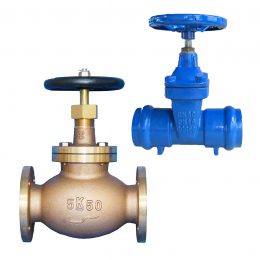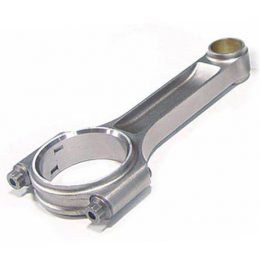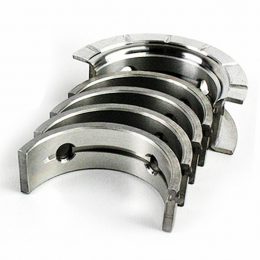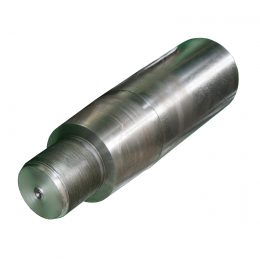“The Importance of Cylinder Liners in Marine Diesel Engines: Functions, Types, and Maintenance”
Understanding the Role of Cylinder Liners in Marine Diesel Engines
Marine diesel engines are highly complex machines, with numerous components that work together to generate power and propel the vessel forward. One of the most important parts of a marine diesel engine is the cylinder liner, which plays a critical role in the engine’s performance and longevity. In this article, we will explore the key functions of cylinder liners in marine diesel engines, the different types of liners available, and the factors that can affect their performance. We will also provide guidance on how to maintain and replace cylinder liners to ensure optimal engine performance.
Key Functions of Cylinder Liners in Marine Diesel Engines
Cylinder liners are cylindrical sleeves that are installed inside the engine block, providing a smooth and durable surface for the piston to move up and down in. The primary function of cylinder liners in marine diesel engines is to reduce friction and wear between the piston and the engine block. Without cylinder liners, the piston would quickly wear away the engine block, leading to catastrophic engine failure.
In addition to reducing friction and wear, cylinder liners also help to maintain good compression in the engine by creating a seal around the piston. By providing a smooth and consistent surface for the piston to move against, cylinder liners help to ensure that the engine runs smoothly and efficiently. They also help to dissipate heat away from the combustion chamber, preventing the engine from overheating.
Types of Cylinder Liners and Their Pros and Cons
There are several different types of cylinder liners available for marine diesel engines, each with its own set of pros and cons. The most common types of cylinder liners are cast iron, steel, and chrome-plated liners. Cast iron liners are the most traditional option, offering good durability and resistance to corrosion. Steel liners are stronger than cast iron, but can be more difficult to machine and require more precise installation. Chrome-plated liners offer the best combination of durability and heat dissipation, but are also the most expensive option.
Each type of cylinder liner has its own unique advantages and disadvantages, depending on the specific needs of the engine. Factors such as engine size, operating conditions, and budget will all play a role in determining the best type of cylinder liner to use.
Factors Affecting the Performance of Cylinder Liners in Marine Diesel Engines
There are several factors that can affect the performance of cylinder liners in marine diesel engines, including corrosion, erosion, and thermal stress. Corrosion can occur when the engine is exposed to saltwater or other corrosive substances, causing the liner to degrade over time. Erosion can occur when particles in the fuel or lubrication system become trapped between the piston and liner, causing small scratches or pits to form. Thermal stress can occur when the engine is subjected to high temperatures, causing the liner to expand and contract.
To ensure optimal performance of cylinder liners, it is important to regularly inspect them for signs of wear or damage, and to take steps to prevent corrosion and erosion. This may involve using high-quality lubricants and fuel additives, installing sacrificial anodes to protect against corrosion, and monitoring engine temperature and pressure levels.
Maintenance and Replacement of Cylinder Liners: Best Practices
Proper maintenance and replacement of cylinder liners is critical for ensuring the longevity and optimal performance of marine diesel engines. When replacing cylinder liners, it is important to use high-quality materials and to follow the manufacturer’s recommendations for installation and maintenance. This may involve using specialized tools and equipment, such as honing machines and torque wrenches, to ensure that the liners are installed correctly and securely.
Regular maintenance of cylinder liners may include cleaning and inspecting them for signs of wear or damage, as well as replacing worn or damaged liners as needed. It is also important to monitor engine performance and to address any issues promptly, to prevent further damage to the engine.
Conclusion: Importance of Cylinder Liners in Ensuring Optimal Performance of Marine Diesel Engines
Cylinder liners are a critical component of marine diesel engines, helping to reduce friction and wear, maintain compression, and dissipate heat. By choosing the right type of cylinder liner and taking steps to prevent corrosion, erosion, and thermal stress, engine owners can ensure that their engines operate smoothly and efficiently for many years to come. Proper maintenance and replacement of cylinder liners is essential for preventing engine failure and ensuring the longevity of marine diesel engines.
- Marine Engine Connecting Rods vs. Standard Connecting Rods
- 5 types of vessel repair: Annual repair, Ship Voyage repair
- Diesel Engine Cylinder Liner: A Key Component for Engine Performance
- 7 Quality Parts of Marine Engine Crankshaft
- Analysis of The intelligent ship technology development
- Marine Cylinder Liner Maintenance Tips



